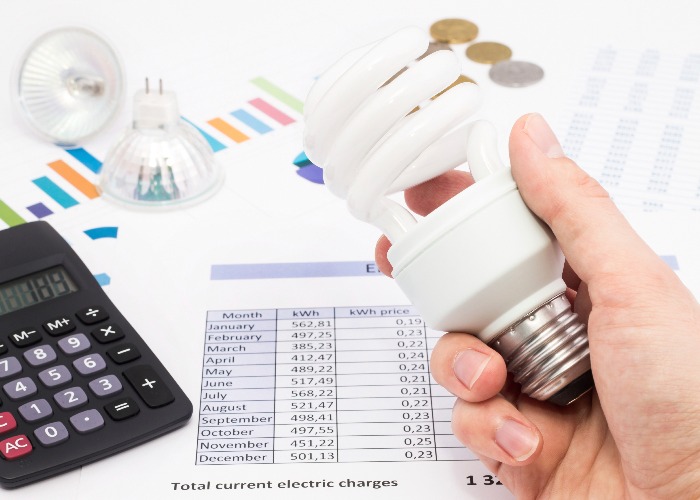Opinion: regulator has to bring bickering energy firms in line for the good of customers

The regulator has not yet outlined possible options for protecting the credit balances we build up with energy suppliers.
Dozens of energy suppliers have gone bust over the last couple of years, as the rocketing costs of the wholesale market have made it impossible for them to remain in business.
I’ve been on the receiving end of this upheaval twice, with my supplier hitting the wall.
The good news is that for individual households, the process of being moved to a new supplier is pretty slick.
You don’t suffer any outages ‒ instead Ofgem, the energy regulator, appoints a provider to take over the customers of the business that has gone bust.
However, it’s impossible to avoid the fact that when suppliers go bust, there are costs left behind that need to be paid.
For example, if I am £500 in credit with my old supplier that hits the wall, that credit is essentially ‘transferred’ to my new supplier.
That cash has to come from somewhere, most likely in the form of higher bills.
Ringfencing cash
This is not exactly fair.
If a supplier takes on customers from a failed rival ‒ and has to honour credit balances ‒ then why should both new and existing customers face higher costs in order to make those sums add up?
It’s because of this that Ofgem has promised to put new rules in place, which will see customer credit balances ringfenced from suppliers’ balance sheets.
In effect, it would mean that, when I’m in credit with my supplier, that money is kept separate from the supplier, so that if it went bust the money could be moved over to my new supplier.
As Ofgem put it, customer credit balances should be “used appropriately” and not available to suppliers to fund their wider activities.
The regulator was due to publish the various ideas for how this could work in mid-March, but the eagle-eyed among you will have noticed that we haven’t heard a word as yet.
Bickering suppliers
According to reports in The Times, this delay is down to arguments between the main suppliers over the idea of ringfencing.
The biggest names ‒ like Centrica, owners of British Gas, and Eon ‒ are reportedly in favour of ringfencing, arguing that, otherwise, suppliers can effectively spend their customers’ money.
But then they are big enough to be able to cope with the impact of ringfencing relatively painlessly.
However, it appears to be a different story with smaller suppliers.
Some have pointed out that credit balances are offset by the money owed by other customers, while others have argued that ringfencing is a bit of a “meaningless gesture”, with the regulator better off spending its time on proper stress testing of energy companies to ensure they are fit for practice.
Why not both?
Let’s start with the ring-fencing.
It is absolutely right that credit balances should be treated separately in my view ‒ the quirks of the way that we pay for our energy means that we pay for more than we use in the summer to then cover for the higher use, and therefore higher bills, in the winter.
But if my account is in credit, it’s so that that money goes towards the winter months, I’m not simply overpaying out of the goodness of my heart.
Equally, the fact that we have the right to request that these credit balances are repaid at any point suggests that it would be wise to keep them separate from a supplier’s regular finances.
It’s true that this may be a big ask for some of the smaller suppliers, but that doesn’t make it any less worthwhile doing.
After all, it’s the small suppliers that are most likely to hit the wall and therefore cause issues regarding transferring credit balances.
However, it’s also true that this isn’t some sort of golden bullet that will cure all of the energy market’s ills.
It’s abundantly clear that the regulator has not been sufficiently firm in ensuring that would-be providers are up to scratch before being permitted to launch, and that has contributed to the stress of the collapsing suppliers over the last few years.
There’s no question that Ofgem needs to take a stronger grip on the market it’s overseeing.
This is only emphasised by the fact that its promised new plans are being delayed by rows between the firms Ofgem is supposed to be regulating.
I appreciate the importance of getting ‘buy in’ over these things from your charges, but ultimately Ofgem needs to have the final say here.
Ringfencing credit balances is the right thing to do, but it is going to need Ofgem to show some backbone in putting the rules in place, rather than checking with the big names to ensure they are happy first.
Comments
Be the first to comment
Do you want to comment on this article? You need to be signed in for this feature